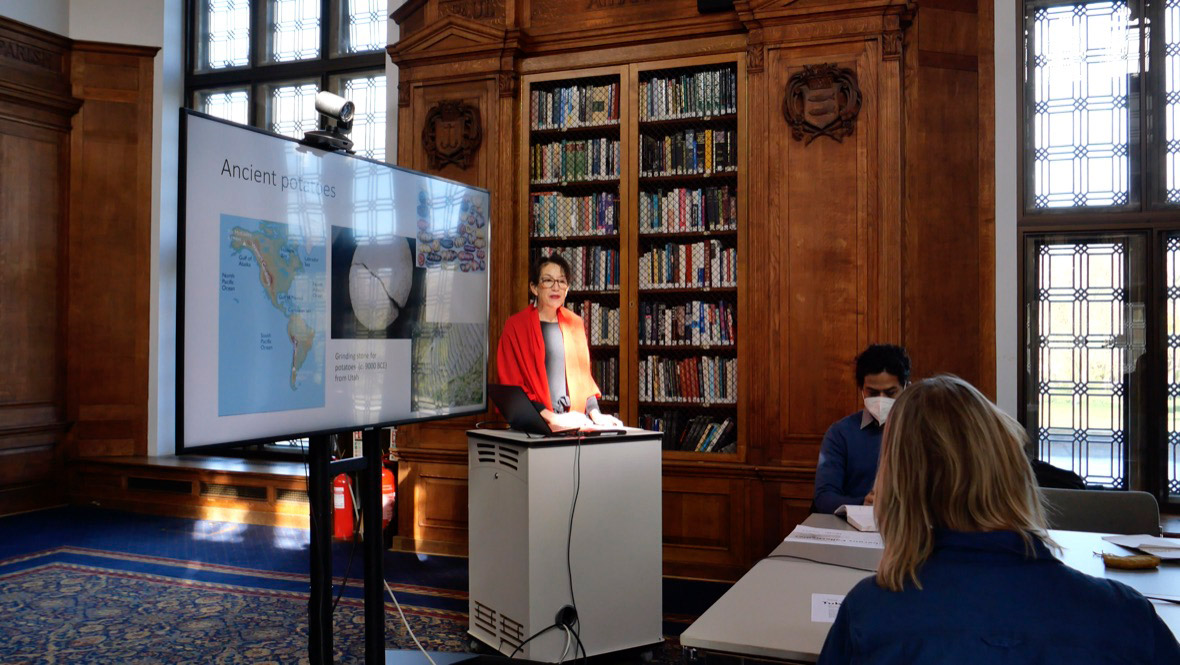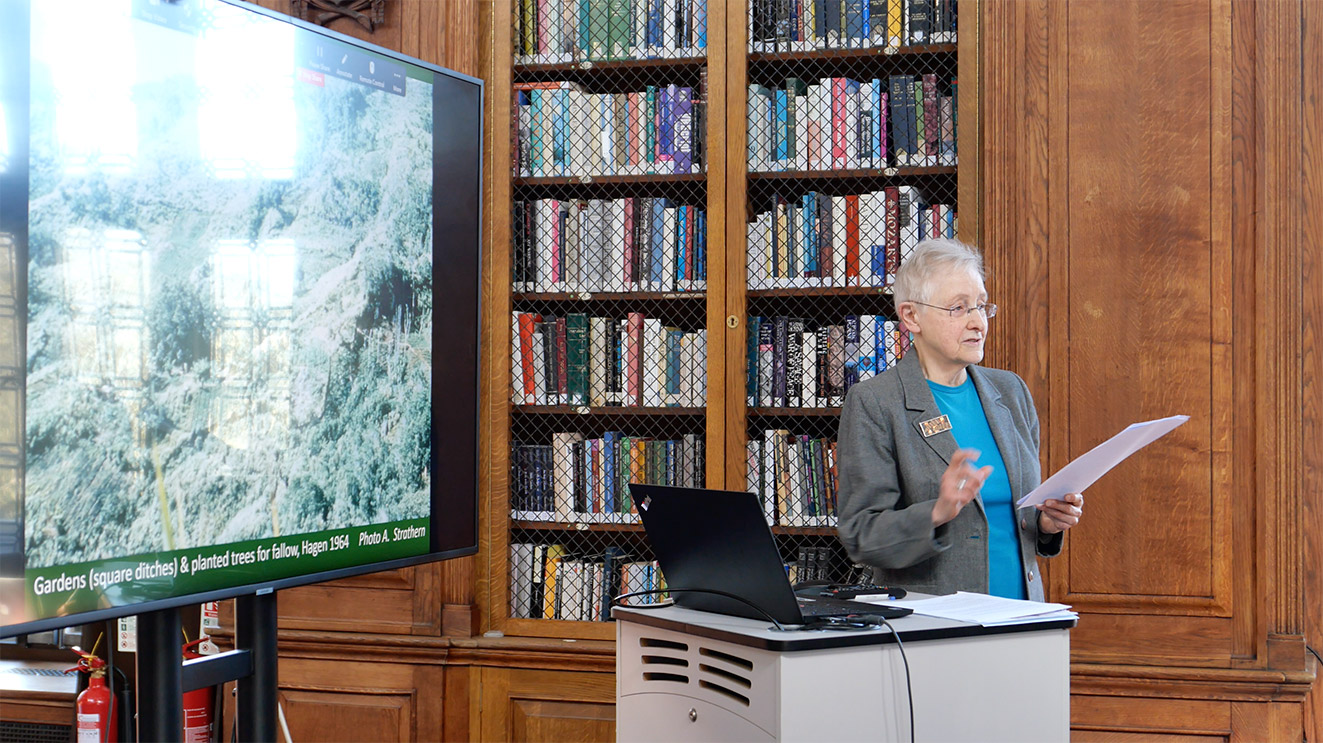Tuberous Collectivities
An Interdisciplinary Exploration into Human-Tuber Companionship across Histories
Dates: 14th and 15th of March 2022
Venue: Jesus College – University of Cambridge - UK
Funding: ERC – FNRS – ULB – Fondation Weiner Anspach
While potato was vital to the expansion of the Inca empire, its role in the emergence of European capitalism is well established. It is now produced on the five continents, and new countries, like China and India, are emerging as leaders competing with former massive producers from the Western capitalist corner. This workshop sets out to revisit and nuance existing theories on the tuberous egalitarian social formations, by documenting tuber-human “companionship” (Haraway 2008) in disparate historical contexts and thereby examining the manifold tuber protagonism in an array of societies. What is the impact of this tuberous turn for humans, tubers, and the other beings composing these contemporary ecologies? How does human-tuber relatedness unfold across space and time and what kinds of collectives are thread in these encounters? To tackle these questions, this workshop gathers scholars from an array of disciplines who will document human-tuber entanglements in history, geography, botany, anthropology, sociology, political sciences or philosophy.
Donwload : Conference programme


Convenors
- Olivia Angé – University of Brussels
- David Nally – University of Cambridge
Keynotes
- Rebecca Earle – University of Warwick
- James Scott – Yale University
- Marilyn Strathern – University of Cambridge
Participants
- Francesca Bray – University of Edinburgh
- Ludovic Coupaye – University College London
- Helen Curry – University of Cambridge
- Lewis Daly – University College London
- Roy Ellen – University of Kent
- Patrick Joyce – University of Manchester
- Eben Kirksey – Deakin University
- Mark Mosko – Australian National University
- Deirdre O’Mahony – Artist and Researcher, Kilkenny
- Nancy Ries – Colgate University
- Richard Scaglion – University of Pittsburgh
- Aså Sonjasdotter – University of Gothenburg, Artis
- Michael Uzendoski – Flacso, Equator
- Karl Zimmerer – Pennsylvania State University
Conference Proposal
The longstanding distinction between hunter gatherers and cultivators societies speaks to anthropologists’ early perception of the relevance of plant use to the unfolding of society. Some scholars further drew a line among cultivators, differentiating cereal from tuber growers (Haudricourt 1964). On this regard, tuber cultivation has been acknowledged to shape specific kinds of “less civilised” egalitarian social formations (Testart 1982). This contrast between grain and tuber growers culminates in James Scott’s recent book (2017), highlighting the implication of crop cultivation to the formation and expansion of state power in a long-term historical perspective. Scott also regards tubers as particularly propitious to sustain subaltern, marginalised populations. His work partakes in an ongoing “plant turn” (Myers 2015) whereby scholars from across various disciplines highlight the participation of vegetal beings in the making of societies. Tubers’ materiality indeed offers peculiar affordances (Nally and Kearns 2020), notably related to their voluminous and watery vegetal body, to their highly productive and richly nutritive qualities (Ries 2009), to their clonal mode of reproduction (Haudricourt 1964), and rizhomatic growing (Strathern 2017). Yet, in light of this potato scholarship, we content that tuberous sociabilities, economies and ecologies are far more diverse than the egalitarian argument suggests. This workshop sets out to revisit and nuance existing theories on the tuberous egalitarian social formations, by documenting tuber-human “companionship” (Haraway 2008) in disparate historical contexts and thereby examining the manifold tuber protagonism in an array of societies. How is tuber vegetative reproduction entangled to the flourishing of human life across space and time?
While potato was vital to the expansion of the Inca empire, its role in the emergence of European capitalism is well established albeit tainted with the millions of deaths in the 19th century Irish Famine. Its participation to Andean and European histories cannot be overstated. Yet, after being imported from the Andes by colonisers in the 16th century, the potato spread the world over to become the third more consumed crop by human beings. It is now produced on the five continents, and new countries, like China and India, are emerging as leaders competing with former massive producers from the Western capitalist corner. China has engaged a massive campaign operating a shift from rice to tuber state agriculture, in order to cope with expected land and water scarcity in a context of demographic growth. At the same time, potato remains a cherished crop in Andean communities where thousands of varieties are curated through labour intensive agriculture on the mountain peaks (Angé et al. 2018). While the capitalist market offers minor monetary reward to their highland growers, these varieties are coveted by another highly lucrative business of genetic resources for laboratory manipulations and seed production. International institutions are indeed praising the potato’s promise to overcome poverty and foster adaptation to damaged ecologies and upset climates. In the wake of the 2008 United Nations year of the potato, potato consortia from across the world are inviting us to “hear the voice of potato” (China Potato Expo 2019) and welcome “a new era of the potato” (Interpom 2021).
What is the impact of this tuberous turn for humans, tubers, and the other beings composing these contemporary ecologies? What does the massive production of potato entail to human sociabilities and more than human collectivities? How does human-tuber companionship in an array of tuberous agricultures articulate with such large scale markets of seeds and crops? When and how do tubers foster earthly flourishing as promised by international institutions? Do tubers entail specific kinds of political formations as suggested in existing literature? How does human-tuber relatedness unfold across space and time and what kinds of collectives are thread in these encounters? To tackle these questions, this workshop gathers scholars from an array of disciplines who will document human-tuber entanglements in history, geography, botany, anthropology, sociology, political sciences or philosophy. While potato is arguably overwhelming in human diet and agribusiness, the workshop considers an array of tuberous sociabilities, entailing yucca, taro, yam, or sweet potato in an attempt to bring out the nuances and textures of human-tuber companionship in its diversity.
